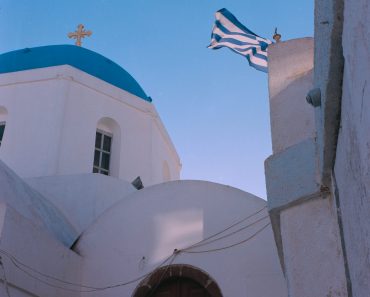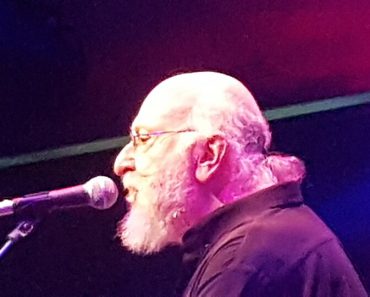
Why do we need tragedy? The National Theater Company of Korea asks this question with the opening of its ambitious pentalogy, “Anthropolis,” at the Myeongdong Arts Theater in central Seoul.
The five-part cycle explores the enduring tragedies of the royal house of Thebes in ancient Greek mythology. Premiered in 2023 by German playwright Roland Schimmelpfennig and director Karin Beier, the production has now arrived in Korea, with a different director for each part.
The first installment, “Prolog/Dionysos,” directed by Yoon Han-sol, runs through Sunday, followed by “Laios,” directed by Kim Su-jung, scheduled for Nov. 6-22. The remaining three installments are slated for next year.
“Prolog/Dionysos” opens with the founding of Thebes by Cadmus, a Phoenician prince searching for his sister Europa, whom Zeus had abducted. The city later becomes the birthplace of Dionysos, son of Zeus and Semele, and the center of his cult. The story follows Dionysos as he punishes those who challenge his divinity.
At a press conference last week, the directors of the first two installments stressed their intention to make these ancient myths speak to contemporary Korean audiences.
“Compared with European audiences, Korean viewers are naturally less familiar with Greek tragedy. We incorporated music and dance to make the story more accessible,” said Yoon.
So “Prolog/Dionysos” has been staged as a grand production featuring 18 actors and five musicians for live band music. In Prolog, soft solo singing sets the tone, while in Dionysos, dancers performing as an 11-member chorus move with the energy of a musical or a K-pop act.
The production intersperses song, dance, live-camera footage, Korean subtitles projected on screen and B-movie-style humor, serving as a counterweight to the heavy, 180-minute drama.
Yoon said he interpreted the story of Thebes’ founding myth as the spread of civilization and, to set the tone for the cycle, brought the makeup room onto the stage, reflecting the idea that every theater performance begins in the dressing room.
“We also interpreted Dionysos as a new, foreign civilization, framing the story as a clash between emerging and established powers and cultures,” said Yoon.
True to the genre, the play ends in harrowing tragedy. Pentheus, who defies divine power, meets a grisly fate at the hands of his mother and aunts, driven mad by Dionysos.
“I think what we need is a tragedy that confronts wounds openly, rather than offering stories of forgiveness or redemption,” Yoon said.
Part two, “Laios,” is a one-person play — a wholly original work by Schimmelpfennig that centers on the father slain by Oedipus. Actor Jeon Hye-jin takes the stage alone.
“It follows Laios’ desires and asks why Oedipus was fated to become the tragic hero,” said director Kim. “I wanted to question why certain tragedies or cycles of violence repeat across generations, and whether it is possible for us to break them.”
In a statement released for the Korean production, playwright Schimmelpfennig said, “The ancient stories are mirrors in which we can still recognize ourselves today: in our longings, in our fears, in our struggles for justice, in the never fully resolvable contradiction between society and individuality.”
He said, “Antiquity is not a closed chapter. It is a reservoir of stories that we can read and retell again and again — especially in a time when we are confronted with upheavals, uncertainties and crises.”
English subtitles will be provided for both “Prolog/Dionysos” and “Laios” on Thursdays and Sundays, except on Nov. 16, when a barrier-free performance will be offered with audio description, Korean sign language interpretation and Korean subtitles.

hwangdh@heraldcorp.com







